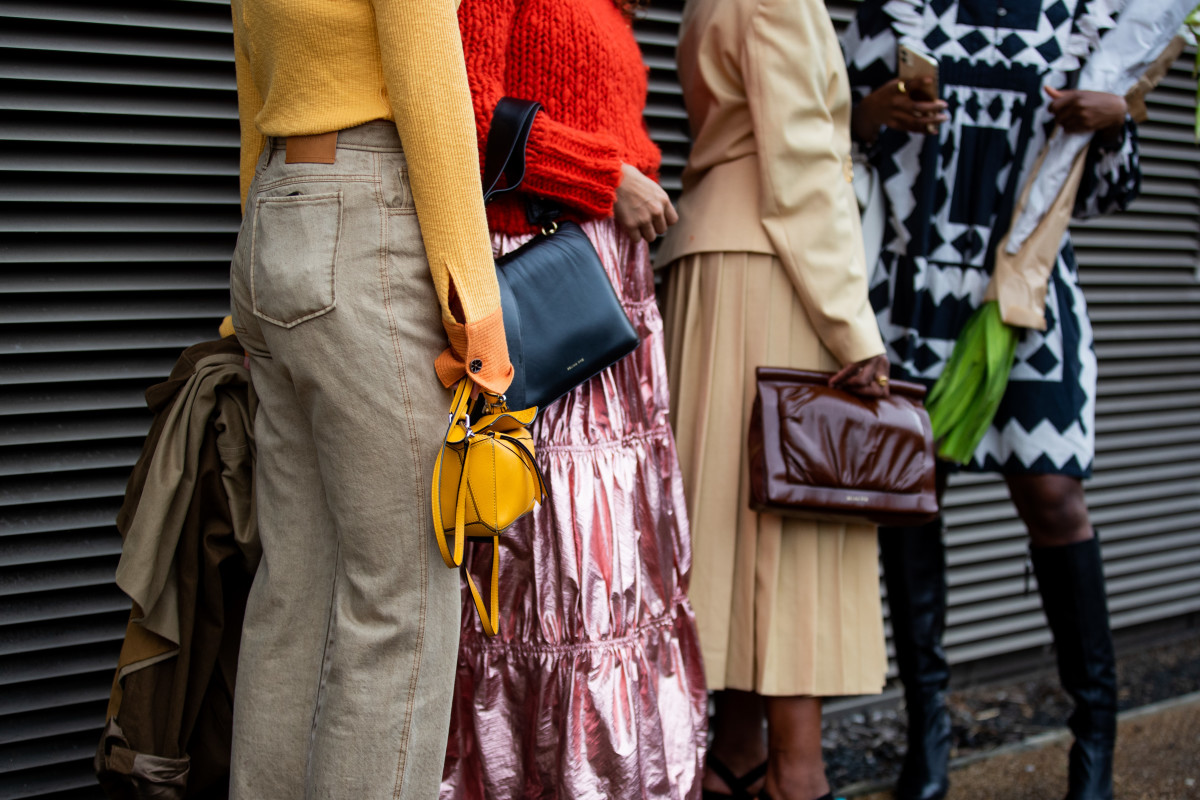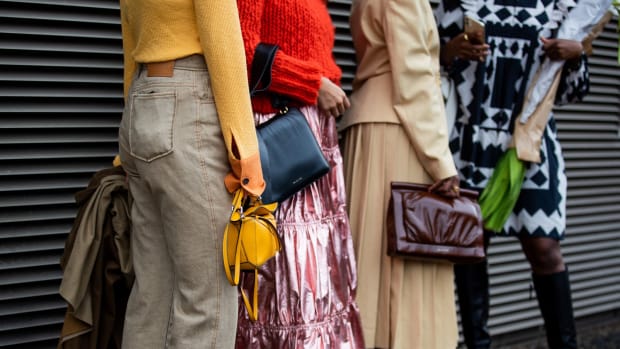Photo: Christian Vierig/Getty Images
The market for secondhand clothing and accessories has grown rapidly (21 times faster than the overall apparel retail market, to be exact) over the last few years, and there are no signs of that growth slowing. More and more consumers are embracing the buying and selling of used designer goods through platforms like The Real Real, Rebag and Fashionphile. Meanwhile, traditional luxury brands and retailers, who were once wary of these competitive platforms and their wide assortments of discounted designer treasures, are increasingly choosing to embrace this shift in consumer behavior, instead of fighting it.
Luxury e-commerce giant Net-a-Porter is the latest to get on board. Along with sister sites Mr Porter and The Outnet, the retailer announced that it's partnering with resale technology provider Reflaunt to launch a pilot program that encourages customers to extend the lives of their designer pieces — by selling them.
This new service enables customers to send in their "well-preserved" designer jewelry, ready-to-wear, bags and shoes in exchange for either Net-a-Porter credit or a direct bank transfer. (In the hopes that sellers will spend their earnings on new designer goods, Net-a-Porter will reward you with an extra 10% if you choose store credit.) The service launches at the end of October on Net-a-Porter and in early 2022 on Mr Porter and The Outnet. It will first be available in the UK, followed by the U.S., Germany and Hong Kong SAR.
"More than ever, our customers are looking for fashion that's not only designed to last, but for ways in which it can go on to be re-loved," Alison Loehnis, president of luxury and fashion at all three sites, in a statement. "We see re-commerce as a true enabler to tap into greater product longevity by extending the lives of pre-loved purchases. This collaboration represents an exciting step in our long-term mission to drive the change at Yoox Net-a-Porter to a more circular fashion ecosystem."
Recommended Articles
Reflaunt will power the backend of this operation, including complimentary collection of products from sellers' homes, authentication, pricing recommendation, professional photography and listing. The company doesn't list items itself, instead uploading them to other international marketplaces. Net-a-Porter won't pay sellers until their items sell, unless it's a handbag from a pre-approved designer; in that case, sellers can receive store credit as soon as the bag is approved by Reflaunt.
Reflaunt aims to merge the primary and secondary markets by taking care of the logistics and technology required to create a personalized resale service for firsthand brands and retailers. Thus far, its other partners have included Cos, Ba&sh, Harvey Nichols and Balenciaga, whose CEO was among the investors in a $2.7 million pre-series A funding round this February.
Net-a-Porter's approach to entering resale feels similar to that of Neiman Marcus, which began working with (and invested in) Fashionphile back in 2019 to open shop-in-shops where customers can come in and sell their used luxury handbags. In early 2020, Nordstrom got into the game by selling used clothing through a new concept called See You Tomorrow that has since been quietly discontinued. Individual brands including Madewell, Eileen Fisher, Reformation, Everlane, Levi's, Stella McCartney, Burberry and Gucci have also advanced their circular fashion efforts with resale programs that are either managed in-house or in partnership with platforms like Thredup and The Real Real.
Ideally, these programs and partnerships benefit the firsthand retailers by bringing in foot — and/or digital — traffic and by providing sellers with cash they'll hopefully spend on new items, while also, perhaps subliminally, making it easier for shoppers to justify new purchases with the knowledge that they can easily turn around and sell the item back at any time (a message that's albeit potentially at odds with any goal to reduce overall consumption). A massive luxury retailer and e-commerce pioneer like Net-a-Porter participating in resale further validates this shift in consumer behavior, and feels like a strong predictor of similar programs to come.
Never miss the latest fashion industry news. Sign up for the Fashionista daily newsletter.





